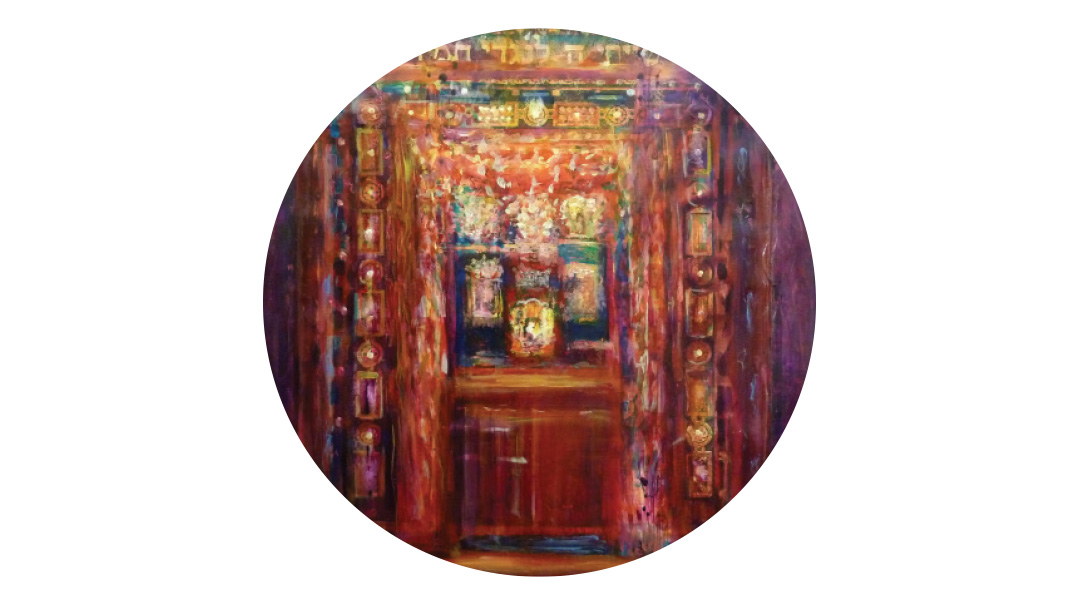Objective/Subjective Reality

We're sure our perception is truth — but is it?

N
ineteen-year-old Slovi, an in-town gal, has just become a kallah. She’s flying to her chassan’s home out-of-town for the first time. She’s excited to get to know her prospective in-laws. Her chassan’s easygoing, and she’s curious to see if his home is different from her tension-filled one.
It’s an interesting Shabbos, and on Sunday, at the engagement party, she gets a taste of out of town, which seems so quaint to her. Family friends come the day of the simchah bearing various dishes for the party. Mrs. Kaplinsky brings cream cheese balls shaped like roses, and Mrs. Perlstein brings her signature tuna fish salad molded into the shape of a fish.
Slovi takes it all in with a smile. On Monday morning, as she’s eating breakfast with her future mother-in-law, Slovi thanks her for a wonderful stay, commenting how much she enjoyed being in their relaxed home. Her mother-in-law responds, “Honey, you’re looking at the world through rose-colored lenses because you’re a kallah.”
The Glasses We Wear
We all have a set of lenses through which we filter sensory input. It’s those lenses that determine the meaning we ascribe to our experiences. The lenses can be positive, as in Slovi’s case, or they can be negative.
She texted the invite instead of calling. One set of lenses will see that as efficient, another will see it as a lack of social grace. I’d never text an invite; why couldn’t she just pick up the phone?
The question is: How closely is our perception and our subsequent understanding of events connected to emes, to truth? Are all interpretations subjective? Is there an objective reality? And does it really matter?
One of the most powerful lessons we can draw from the original events that led to the bein hameitzarim period is that when we look at the world through a “biased” set of lenses, we create the greatest source of (avoidable) suffering in our lives.
The Sin of the Golden Calf, which precipitated the breaking of the Luchos, brought immediate suffering to the Jewish People. In addition, the Talmud states (Sanhedrin 102a, quoted in Alei Shur) that in every punishment that comes to the Jewish People since that time (according to another opinion, for 24 generations since), there’s a small amount of retribution that comes because of the Sin of the Golden Calf.
We know that the Sin of the Spies, in which the Jews cried when they heard the spies’ report, was the cause of all the Jewish People’s tears throughout all the generations. It sowed the seeds of the destruction of our Batei Mikdash and our exile from the Land of Israel.
Rav Wolbe points out that the roots of both these sins were subtle misperceptions. In making the Golden Calf, the people were seeking a physical representation of Moshe, who they were afraid wasn’t coming down from the mountain. Why did they choose a calf? An ox represents the attribute of din, strict justice, and picking out that middah to represent Moshe was a misrepresentation of their leader’s attributes.
Anytime you choose one attribute to represent a person, you have lost sight of the whole, and distortion results. Who had more compassion for them or advocated for them more than Moshe did?
The Sin of the Spies was equally delicate, and we see that their bias distorted their vision. The people came to Moshe, asking him to send spies. Sending spies for reconnaissance purposes wasn’t a problem; we see that Yehoshua sent spies when the nation was about to cross into the land. Rather they came to Moshe in confusion (Rashi) because they were so afraid of war.
At their level, sending spies to scout out the land to allay their fear of war showed a greater reliance on natural means than was necessary. This was a lessening of their trust in Hashem, and it was this lack of trust that led to the spies tragically misinterpreting what they saw in the land. Hashem had the inhabitants of the land busy burying their dead to divert their attention from the spies; Bnei Yisrael perceived a land that consumes its inhabitants.
Shidduchim today are fraught with tension. We’re hypervigilant in examining every detail on each date to try to make sure we (or our child) don’t end up members of the expanding circle of divorcees in our communities.
While this is understandable, we need to ask ourselves: How much of our perceptions are colored by other things? How accurate is our interpretation of what we’re seeing? A boy comes late to a first date to pick up your daughter and doesn’t apologize to you. You say, “This boy is clearly inconsiderate.” Could it be that the reality is different, and he was just flustered?
Living with Reality
In Alei Shur, Rav Wolbe gives us two preliminary conditions for starting out on the path toward seeing emes, or objective reality, in our lives. First, in order to find emes, we have to have a strong desire to seek it. We have to value living a life that’s real, and not some fantasy version of reality that we’ve created with the lenses of our choosing. If we don’t seek the objective reality in our own lives, how can we possibly hope to be able to ascertain what He wants from us in any given situation?
The second condition for finding emes is accepting the fact that the truth of the matter is almost always difficult to see. Emes describes something that was hidden and then is revealed, just like Hashem, the ultimate Source of emes, is hidden in the world, and it’s our job to reveal Him. If you take a surface view or jump to a conclusion, it’s not likely to be emes. Emes always requires deeper thought and investigation. When we look at a situation and immediately think we understand what we are seeing, we should ask ourselves: What personal agenda is this conclusion serving?
Objectivity requires taking a careful look at one’s self. Examine the premises with which you live your life. Do you think people are basically inconsiderate? Think everyone’s out to take advantage of you? Expect the worst to happen? Or, conversely, do you feel you always know better than your spouse, or that people’s criticisms of you are always mistaken? Any single premise that that regularly colors our understanding of a situation should motivate us to assess whether we looking at the world too subjectively.
Make Emes Yours
How can we address our own subjectivity?
- Practice seeing with emes. Don’t attach a message to every event. Try to just see what happened, but without the commentary. My friend disappointed me, but I don’t have to brand her as inconsiderate. My husband isn’t verbally affectionate. I don’t need to assume that he doesn’t love me.
- Practice speaking with emes. When you relate something that occurred, just state what you saw, not what it means. If you heard most of the story, don’t jump to the conclusion that you know the rest. Say what you know — and no more. Be willing to say, “I don’t know,” even to people who expect you to know.
- Reserve judgment. Decide that you don’t have to have an opinion, either positive or negative, on every person or situation.
At this time of the year, as we recall all that we’ve suffered because we didn’t see the emes and therefore didn’t respond properly, the need for the ultimate Geulah comes sharply into focus. At that time, the curtain of illusion will be lifted, the world will be filled with the knowledge of Hashem, and we’ll be able to live completely with emes.
May our small attempts to seek truth reveal the emes that’s hidden in the world — and in ourselves — and move us in the direction of redemption. May it come speedily in our days.
Originally featured in Family First, Issue 651. Debbie Greenblatt is a senior lecturer for the Gateways organization and a teacher of both observant and not-yet-observant Jewish women for over 30 years. Debbie’s lecture topics include Jewish texts, Jewish thought, and relationships.
Oops! We could not locate your form.







